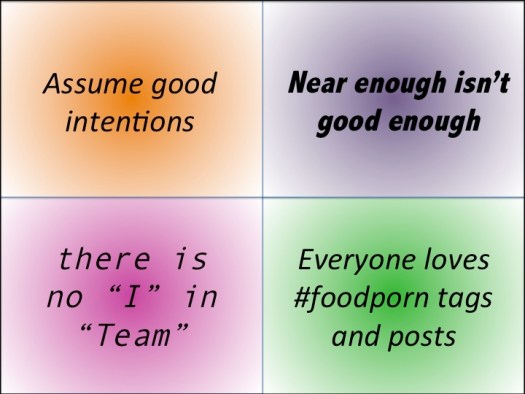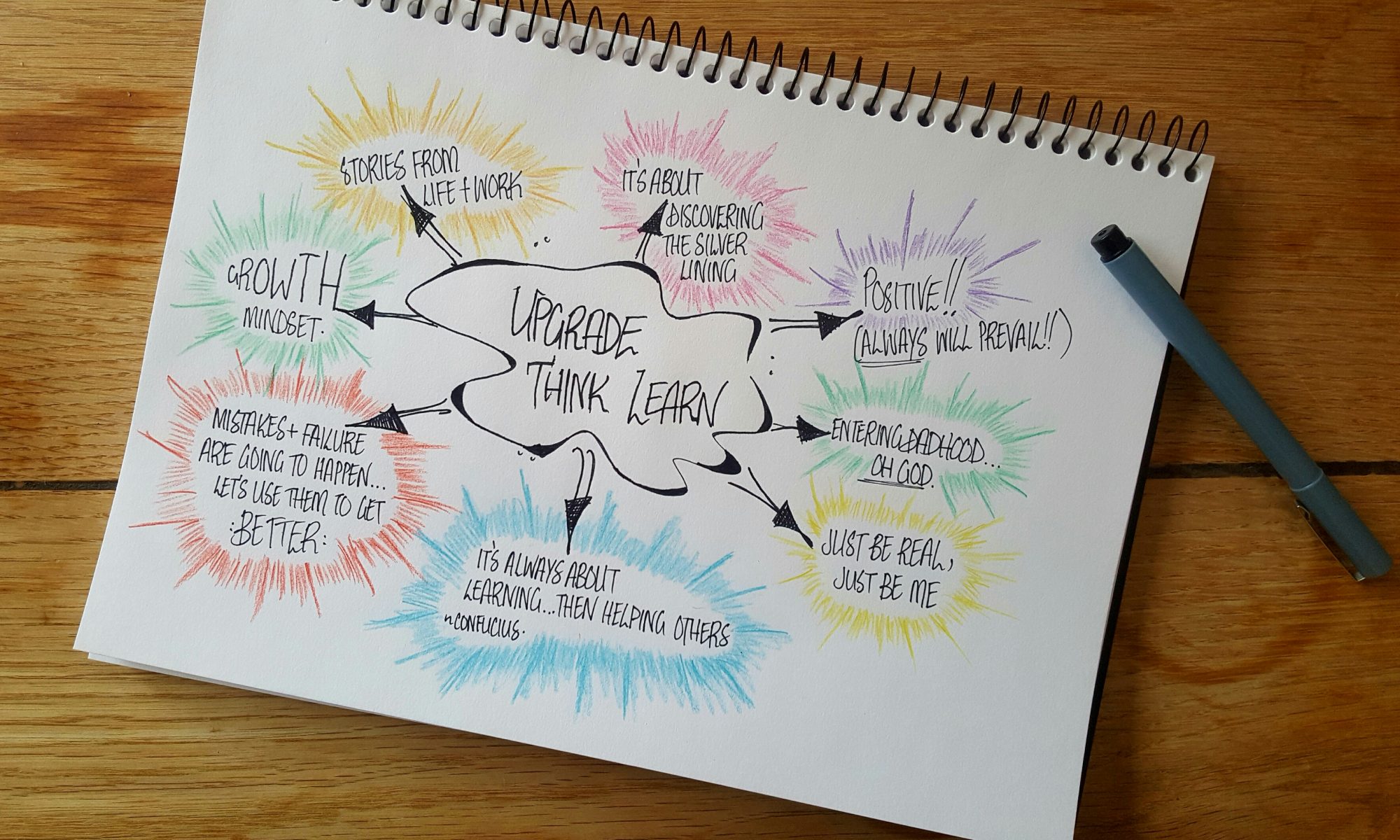It’s been an amazing few weeks here at Upgraded headquarters.
We’ve not only been developing and creating our very own personal time machines and establishing ways to shape reputations better than Donald Trump, but we’ve begun down the paths of physically altering and changing our brains through growth mindsets. We know Usain Bolt would be proud of what we’ve achieved so far*.
#winning
With all of those trivial successes behind us, its time to continue those upgrades.
Welcome to part one of our first two part post,”ET, Baguettes and Space Invaders“.
Have you ever wondered why you follow the rules you do? Those decisions, actions or sayings you live and breath by and seem to almost be mantras that guide your life…

We’re not talking about laws or written rules, but the unwritten rules we all seem to individually or tribally follow. Those rules that no one really points out to you, but you inherently know not to break.
Elbows on the table?
You’re beneath me.
Not shaking hands, hugging (or awkwardly combining both) when greeting people?
Shame on you.
Invading my personal space? (All you Year One students know what’s up)
Get back. Now.
Leaving a poised high five hanging?
You’ll be getting my friendship resignation tomorrow.

The thing that makes living, working and interacting with people interesting/tricky is…well.. the interacting. Every single task, phrase or way we express ourselves comes from certain attitudes, beliefs and values we hold.
When I first arrived on the scene at my in-laws I remember being utterly perplexed that only one person spoke at a time for the entirety of dinner. No battles for quips, queries. There was simply no interrupting someone because you needed the mustard; the expectations and way they valued every person’s right to hold the floor was pretty amazing…and strange.
Reflecting on the experience it was actually quite incredible how quickly these rules were identified as different, assessed as important and then adapted to suit the mood and room. It took time however. Many of my first visits were spent observing and being more quiet than usual while soaking up what was or was not accepted within this tribe.
(Truth be told, I believe at times they may wish I was still in the observant phase)
Which got me thinking and reflecting – how difficult can all of this be for new students to my school? Or, new people to our country?
If an alien, came down to earth (with the ability to speak any language perfectly), morphed to resemble us and happened to walk into any social situation, what issues would it face?
Would it know how to greet people? What to do when someone mispronounces its name? Or what it means if the person in front of you is yawning while you exuberantly explain the meaning of the suffix “-tion“? (FYI: it means “the act of”).
Poor ET would have no idea. None. The concept, skill and purpose of conversing would be a major struggle because of that little concept the French (read Louis XIV) developed during the 18th century…
~etiquette
After misreading and mistaking various etiquette rules, there would come a point where ET would not only be excluded, but actually excommunicated until he quickly demonstrated his worth, intellect and influence to the party in front of him.
Ah etiquette, you sly old dog.
Whilst originally the meaning of the word came from a rough translation of a “label” or a “tag”, you had to go and add that shifty little ‘-uette‘ suffix that means, well, little.
This doesn’t take much for us to put two and two together to get a meaning of ‘little labels’.
The hardest part with all of these little labels, codes and/or social expectations is that they are constantly changing. The group affects it. Time of day affects it. Events that have just happened before affect it (i.e. don’t offer high fives after a funeral). People’s moods affect it.
You could almost say most of our day is spent navigating the wide sub-conscious and conscious world of etiquette. Innuendo, tone, pitch, eye contact and word choice are all incredibly precise and can greatly affect every verbal or non-verbal interaction you have…every minute of every day.
Like a wise monk (read: inebriated football coach) once told me,
“Body language and manners are our universal tool for communication”
And all of these little labels of etiquette are created by whom?
Whatever the group values and deems valuable or important at that point in time. Which is constantly changing, especially through our continuous access to celebrities, fashion, art and our greatest frenemy: social media. Even social media has etiquette.
Don’t believe me? Get your parents onto Facebook or Skype and get ready for much face rubbing or eyebrow raising.
Historically we can thank the 4th Earl of Chesterfield (Sir Phillip Stanhope) for first using the term etiquette in English while writing some thoroughly inspiring letters to his son.
When he wasn’t being an inspiring dad and telling his son that you should often be seen smiling, but never heard laughing (for your whole life), he was reminding him to unsheathe etiquette as a weapon to socially advance himself.
 #jerkface
#jerkface
What we need to really think about is what our role is with etiquette and how we are unsheathing our weapons. (Another strange sentence I did not think I would be typing).
We form and influence all of the groups we are a part of each day. How open-minded are you to accept a new way of thinking or behaving? What are you willing to accept from others dictates not only how they will continue to treat you, but also how they view you (see Jerkface’s point above about social advancement weaponry).
Think of the culture of your family life or work place? When people walk into a meeting late are they utterly apologetic and try to sneak in like a ninja, or do they simply walk in unfazed?
Etiquette can change if the group decides certain rules and expectations are important enough.
The tricky part is having the ability to constantly adapt and adjust to all the adapting and adjusting groups around us. From our families, work groups and social circles to those larger social classes – if we don’t know the rules we can’t ever get into the game.
Stay tuned for Part Two next week: featuring corgis, Matilda and more baguettes! We’ll be discussing the larger groups surrounding us and ways we can upgrade those views or expectations we’ve always assumed were universal.
Please share any of our posts if you think they are worth it and we’d love feedback on any and every topic!
*We aren’t sure of this, but imagining helps.






Another interesting & insightful read. Where is all this deep thinking coming from??
Made me chuckle in a few places. Loved the historical references & research. Children/adults on the spectrum with conditions such as Aspergers are also in the same boat as ET, in regards to not being able to read social situations or decipher etiquette. Makes life very tough for them. Definitely requires an open mind to accept behaviour we might deem unacceptable but that comes from a place that is just “different” to our own.
Mel, you are so right! We often take for granted all of the subtle clues, innuendo or word play we experience…thank you for the great insight!!
Interesting way of explaining and thinking…thanks for a great read!!
I can’t remember how E.T finished, or the whole movie for that matter, but yeah agree I imagine he’d have a hell of a time picking up table manners.
True! Or how to use a shopping trolley properly? (Maybe he’s using it the right way all along?)
Personally I love the presence of our parents on social media – who doesn’t want that kind of entertainment?
This is true,especially when it is happening to your siblings!
Thanks for getting me thinking. This is quite fitting after going back to an old work place but almost as a new staff member!
Glad it got you thinking Shelley! It’s always interesting getting back into a workplace and trying to work out the dynamics and group situations all over again- thank you for the read and comment, and enjoy getting back into your old/new work!